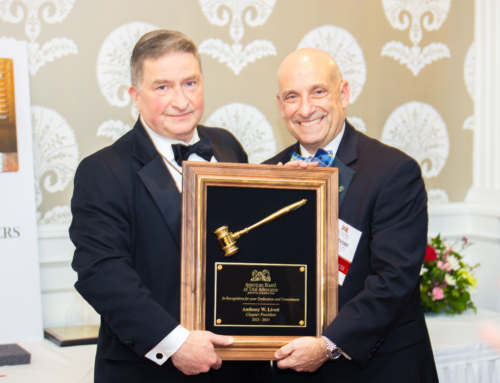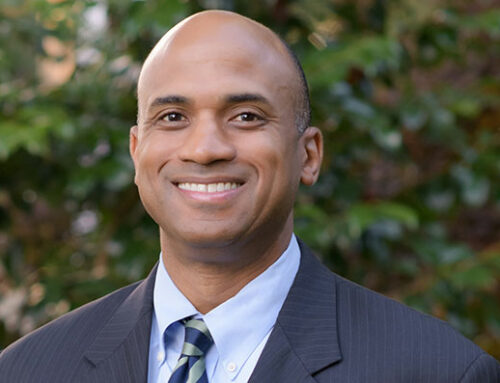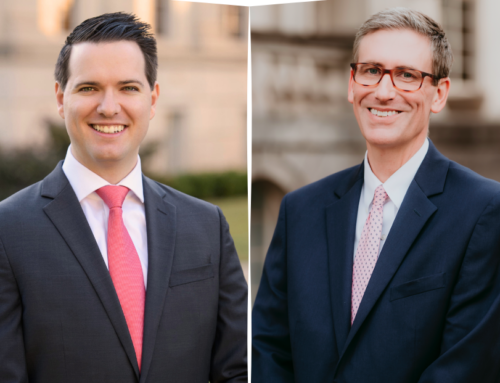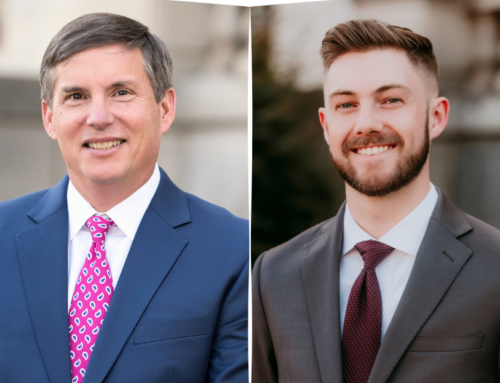Originally published by South Carolina Lawyer magazine: “November 2016 issue p. 8-9”
Emotional Intelligence: Your Firm, Your Family and You
By Henry Deneen
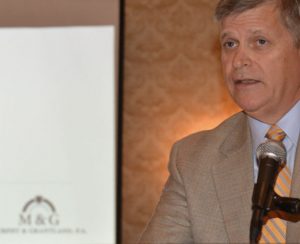 Is it possible to improve relationships with the most important people in our lives—family, friends, fellow attorneys and staff? Are we capable of managing conflicts that could potentially derail us and plunge us into difficulties that consume much more time and energy than we could have imagined?
Is it possible to improve relationships with the most important people in our lives—family, friends, fellow attorneys and staff? Are we capable of managing conflicts that could potentially derail us and plunge us into difficulties that consume much more time and energy than we could have imagined?
These questions can be troubling and seemingly unresolvable. I will attempt to shed light on some possible answers that center on the principle of Emotional Intelligence (EI) and its impact on our personal and professional lives. “Emotional Intelligence includes the ability to engage in sophisticated information processing about one’s own and others’ emotions … (“Emotional Intelligence: New Ability or Eclectic Traits?” John D. Mayer, Peter Salovey and David R. Caruso. American Psychologist, September 2008, Vol. 63, No. 6, pages 503 – 517). In addition to some basic ideas about EI, I’ll look briefly at a training module our law firm has started in order to learn how these issues can apply to those of us in the practice of law and initial steps we can take to see positive results in our lives. Of primary importance is helping us understand and appreciate ways these concepts can be applied in our law firms and with our fellow attorneys, our support staff, our families and our circles of friends. Without practical application, these ideas become just principles without real teeth.
Identifying blind spots
EI is divided into two categories—Personal Competence and Social Competence. Personal Competence is comprised of Self-Awareness and Self-Management,while Social Competence is comprised of Social Awareness and Relationship Management. (Emotional Intelligence 2.0, pp. 23-24) These descriptors enable us to focus on ourselves first, which is critical to this process. Self-understanding is often overlooked and not addressed as we seek to improve relationships but can be one of the greatest hindrances to effective growth. My wife, Celia, who is a school counselor, has often told me over the years (I think she’s only halfway joking!) that, as hard as it is for me to believe, everybody doesn’t think the same way I do. While that’s disconcerting for me to hear, it is a good reminder of the need for self-awareness in producing healthy relationships. I had an experience a couple of years ago that illustrates this idea. I criticized a fellow leader in a public setting, immediately realizing I had not treated him fairly. I called him into my office, apologized to him and then reconvened the meeting to issue a public apology to him. Personal recognition of mistakes and the willingness to make immediate course corrections are both vital parts of EI growth.
My wife had identified a blind spot in my life. I had first heard that term in a class in January 2011, and was determined to learn more. Blind spots can briefly be defined as negative behaviors in which we engage and of which we are unaware; unfortunately, others see them very clearly in our lives. I became acquainted with strategies that can enable us to enjoy deeper relationships and much more pleasant and fulfilling interactions with others. This journey, including correcting behaviors that are unproductive and harmful to relationships, has been life-changing and transformative for me. The same can be true for you.
In our firm
I am leading a group of attorneys through a three-month leadership training module based on EI principles. We are committed to learning basic concepts; to openly discussing areas in our lives we would like to improve; and to focusing on conflict management, blind spots, and developing and maintaining healthier relationships. The attorneys have agreed to meet six times over a three-month period. We are encouraging roundtable discussions, question generation and the exploration of ideas; introducing resources (such as “Emotional Intelligence 2.0,” Bradberry and Greaves); and bringing EI vernacular into our everyday lives. As an ultimate goal, we are moving toward identifying one area in our lives in which we see deficiencies and for which we are seeking improvement. As the facilitator, I am sharing ideas with the attorneys and giving them tools and tips to access the benefits of EI and understand all that it brings to their strategies for improving relationships.
From the firm to family
A pertinent question is: “Can my EI actually improve?” Evidence has shown that two of the factors most critical to the improvement of EI are coachability and willingness to receive and give feedback (“Can You Really Improve Your Emotional Intelligence?” Harvard Business Review Blog Network, entry posted May 29, 2013). Personal buy-in in terms of dedication to improvement, self-initiative, openness, transparency and vulnerability are key. If we really want to improve and grow, it can happen! It is also critical that leaders demonstrate a willingness to be honest and transparent about the things they are learning and the shortcomings in their own lives. In our firm, the partners are all personally engaged in our training module and are eager to improve their own EI, as well as the EI of other lawyers and staff. Questions are being asked about the principles and specific issues with which we are all dealing. I encourage the lawyers to talk about EI in their homes. One of the best things Celia and I have done over the years is talk about and encourage learning of EI principles with our kids. Colleagues of mine have shared about their spouses and kids joining them on this journey and how their family’s awareness of EI principles has impacted the way they view life as a family. We have already begun talking about offering the training to spouses of lawyers. Awareness of EI is the first step. As we learn EI principles, we want to put them into practice and see the change that takes place in the way we react to others and others to us. This can be done—it won’t happen overnight, but we can make great strides in our relationships by being more self-aware, correcting harmful behaviors and asking others to help us on this journey.


